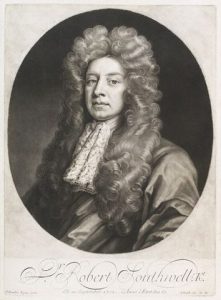Boole Library Visit, October 25, 2017
My introduction to UCC Special Collections took place on a rainy Tuesday evening in the basement of the Boole library. The role of Special Collections in Boole library is the conservation and care of the manuscripts, limited editions and rare pieces that are held within. It also offers a very special service in the guise of an archive and research facility for those interested in exploring these unique items further.
As an introduction, Special Collections Librarian Elaine Harrington guided our group through the Corke Journal, which was first published in 1753. The particular collection we were guided through dates from 1769 – 1772. Ms. Harrington pointed out binding techniques, ink peculiarities and typesetting specific to the journal and the time period.
I chose a seat randomly and found myself on a walk back down through the passage of time via the Kinsale Manorial Papers. The edition was arranged for Sir Robert Southwell and contains the Lord Roche Family papers, arranged chronologically. The papers date from 1607 – 1657.

By Godfrey Kneller via Wikimedia Commons
The original papers are deceptively fragile in appearance. They are of varying size, and bound into more robust standard size leaves for the purpose of preservation and examination. The volume is remarkably light considering the substantial quality of the paper within and the fact that it is quite generous in size. What is immediately evident is the presence of a variety of authors. The scripts within range from being moderately legible to quite indecipherable for an inexperienced reader such as myself.
The introductory pages contain a family tree, and there are several more of these structures at stages throughout, perhaps marking the progression, growth and loss of the Roche family over the fifty years documented within. Throughout the pages also appear to be excerpts from ledgers, documents transferring property ownership, prices and land deeds.
Many of the original leaves are quite noticeably creased and brittle at their periphery. Upon closer inspection, I realized that these are instances of correspondence. On the reverse side of the pages remains evidence of sealing wax and forms of address in remarkably strong inked script. The fact that these letters remain in such outstanding condition considering their passage through the postal system of the time and often inclement weather of this part of the world is an aspect that I find particularly enthralling.
I very much relished this opportunity to explore such artefacts at close quarters. The issues of aura and my considerations on it continue to build and refine throughout my Digital Humanities journey as my personal experiences and acquaintances with such artefacts continue.
